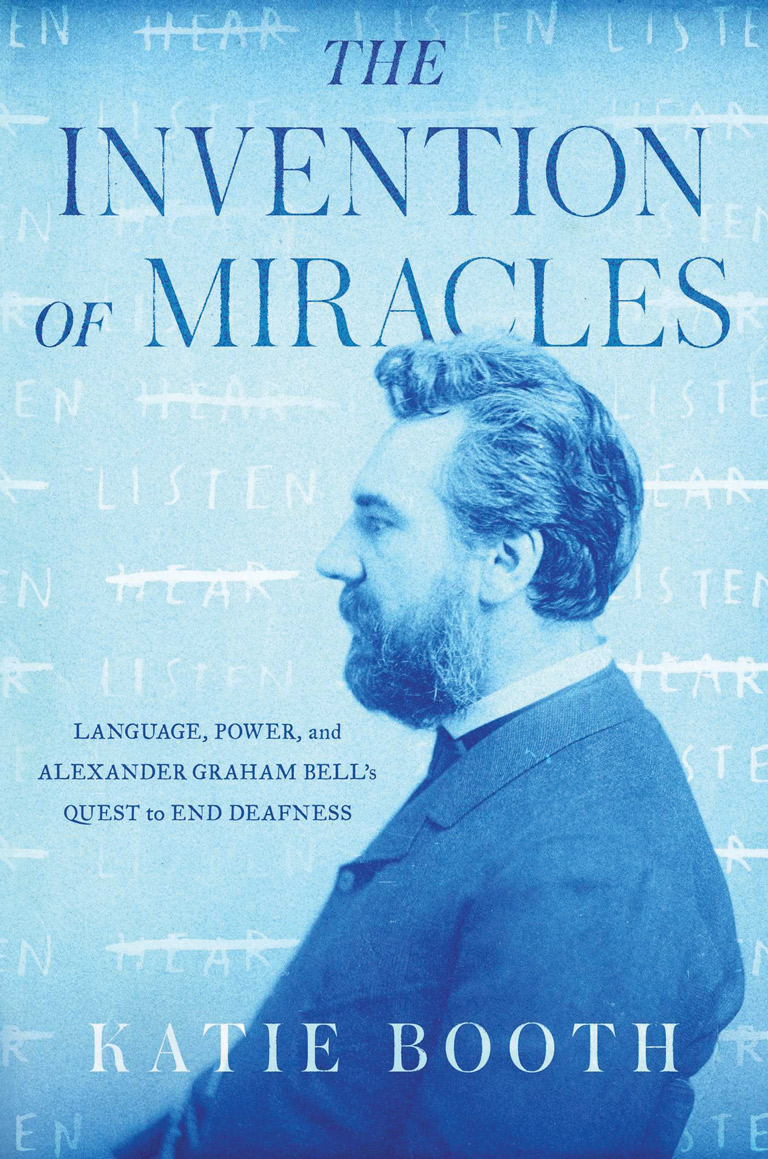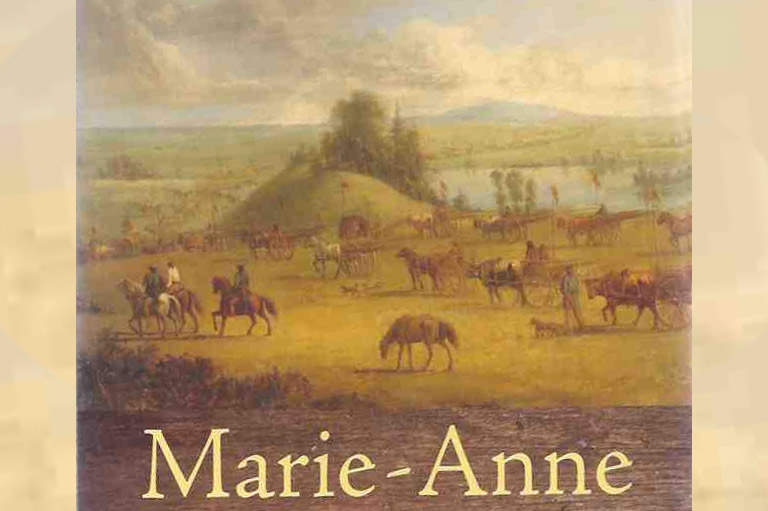The Invention of Miracles

The Invention of Miracles: Language, Power, and Alexander Graham Bell’s Quest to End Deafness
by Katie Booth
Simon & Schuster
413 pages, $39.99
Katie Booth, an American magazine writer and writing instructor, begins her book The Invention of Miracles with all guns blazing. In the prologue, she describes how her deaf grandmother was treated as mentally incompetent by medical and nursing staff as she lay dying in hospital. All her life, this dignified, intelligent woman had communicated with the hearing world by signing rather than with speech. In her final days, no American Sign Language (ASL) interpreter had been brought in, as is required by federal law, to facilitate communication. Instead, writes Booth, health professionals regarded her as “a bother.”
This robbed her grandmother of her language, culture, and dignity — and, argues Booth, it was all the fault of Alexander Graham Bell. So, when Booth saw Bell being celebrated as the inventor of the telephone, she writes, “it sounded as absurd to me as introducing Adolf Hitler as a vegetarian who once ruled over Germany.”
The Invention of Miracles is two books uncomfortably jammed into one. The first half deals with the life of Bell, the Scots-born speech pathologist, up to the point at which he became incredibly wealthy thanks to the 1876 patent that guaranteed the Bell Telephone Company’s monopoly of his invention. Booth describes Bell’s early life, his family’s move to Canada, and his own early commitment to deaf education, and she explains with admirable clarity the scientific challenge of sending the human voice over wire.
Booth also explores her subject’s love affair with Mabel Hubbard, the daughter of Gardiner Hubbard, a Boston patent attorney. Mabel lost her hearing when she was six during a bout of fever; when Bell met Mabel, she was already a skilled lip reader, or oralist. Reflecting the nineteenth-century prejudice against the deaf, Gardiner Hubbard was determined that his daughter should remain in the speaking world. He employed the young inventor to improve Mabel’s enunciation, but soon the lawyer was also involved with Bell’s work on “a speaking telegraph.”
With 7 uniquely curated newsletters to choose from, we have something for everyone.
This is well-ploughed turf; in 2006, I covered the same ground in my biography of Bell, Reluctant Genius, to which Booth refers. Where Booth departs from a standard biography is in the second half of her book, which almost ignores all his post-telephone scientific enquiries into sound, flying machines, and hydrofoils. Instead, she devotes her attention to Bell’s activities around deaf education.
Both Bell and his father-in-law were firmly on the side of oralists in the late-nineteenth-century battle between advocates of oralism and champions of ASL. They were convinced that unless the deaf learned to speak they would be isolated and stigmatized as “defective.” Bell did not want to see the elimination of sign language, as some oralists did, but he did believe that “learning sign language stood in the way of social advancement.” In contrast, ASL proponents argued that only a small minority of deaf children could learn to speak perfectly and that a preoccupation with that skill meant that basic education was being sacrificed.
Booth acknowledges that, in Bell’s lifetime, no one understood that the first five years of a child’s life are crucial for the acquisition of language, and that language is key to further intellectual and emotional development; children who miss the language-acquisition window suffer irreversible brain damage. She also acknowledges that Bell was not the most active oralist. But she insists that, as the inventor of the telephone, “everything he believed was imbued with a sense of … genius,” so his words carried disproportionate weight. She blames him for the victories oralists won in his day, and also for the stigma attached to deafness that still lingers and that made her grandmother’s hospital experience so wretched.
The anger that permeates the prologue to The Invention of Miracles erupts as the author examines Bell’s temporary flirtation with the false science of eugenics. She ignores the context: Plenty of other people in the English-speaking world, including British playwright George Bernard Shaw and Canadian politician Tommy Douglas, toyed with such ideas until they realized their danger. Bell’s proeugenics phase, suggests Booth, was “the most damning” of his career. He had lost touch with humanity, she suggests, and started “playing God.”
Every biography should be a reassessment of its subject, so having a new perspective on the career of Alexander Graham Bell is refreshing. Today we know that Bell was on the losing side of the deaf-education argument. ASL has triumphed thanks to modern appreciation of brain development and the powerful insistence by the deaf themselves of their right to form a separate community.
However, Booth’s negative attitude towards Bell distorts her treatment of another controversial aspect of Bell’s career — the 1876 telephone patent. Ever since the patent application was first filed by Gardiner Hubbard, there have been questions about whether Hubbard manipulated the process. A couple of writers have also suggested that Bell himself cheated, by copying some details from a caveat (a notice of intent to patent) filed by Elisha Gray. There is some evidence to support accusations against Hubbard, but the evidence to substantiate accusations against Bell is, at best, sketchy. However, Booth takes it as fact.
Booth has written a compelling account of society’s assumptions about disability and the assertion of deaf rights. But she has done a disservice to Alexander Graham Bell by casting a shadow on his character and by laying so much responsibility for ableism on his shoulders.
Themes associated with this article
Advertisement




